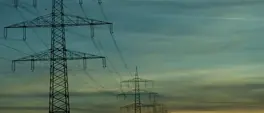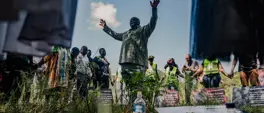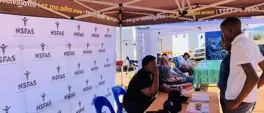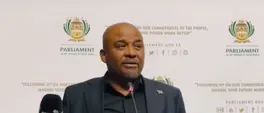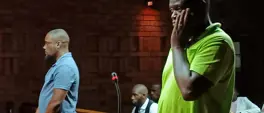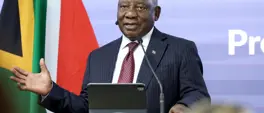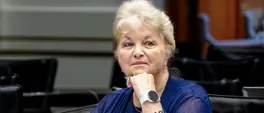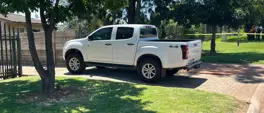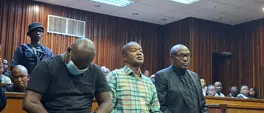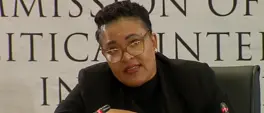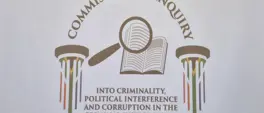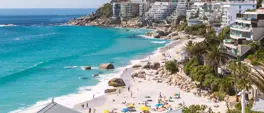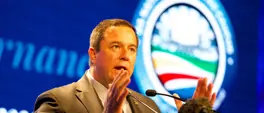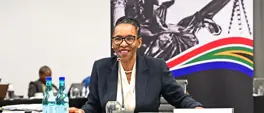JAMIL F. KHAN | Belonging, freedom and the right to be
Jamil F. Khan
1 July 2025 | 11:12'We must check our prejudices on a constant basis, remembering that we do not get to choose whose rights matter and whose don’t,' writes Jamil Khan.
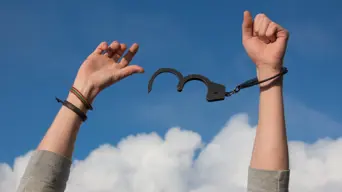
pexels.com
A route I use often in the northern suburbs of Johannesburg cuts through a formerly white suburb. Like many formerly white suburbs in South Africa, it has largely managed to stay that way.
Reflecting an enduring legacy of apartheid spatial planning which we still battle to transform, the leafy streets lined with trees older than me remind one how political space is in our country. The spatial planning legacy we live with was not only about dividing space, but also sanitising the natural landscape of this country of the presence of Black people.
This is reflected in how township spaces were designed to be devoid of trees and plant life, literally separating Black people from nature. Today, this legacy can still be seen in how natural spaces are gatekept under the guise of conservation. After 31 years of democracy, all of this translates into a social and natural landscape in South Africa, which can still be read through the lens of race and how it shows up in public space.
With this in mind, on my commute through this formerly white suburb, I also notice the people on the road and what they are doing. In and amongst the residents zipping up and down the streets, pedestrians range from people doing deliveries to businesses, school children, runners, and salespeople selling their wares on the road.
One morning, I noticed an elderly Black man standing on the island in the middle of the street. The next morning, I saw him there again, and the next morning, I slowed down as I passed him to see what he was doing. He was doing nothing.
The mkhulu was simply standing on the island, watching the cars go by. Wherever he wakes up in the morning, he sets out every day to stand on the road. He is not asking for anything, he is not saying anything, just witnessing.
Whenever I see him, I cannot help but remember that this simple act was once illegal for him. Being in that suburb at all, with no valid reason, was criminalised as loitering. To me, he is doing nothing, but when seen within the politics of his presence there, he is doing many things. He is enjoying the public space of his land.
This has reminded me of the preciousness of this freedom, to exist in public. It may sound somewhat dramatic, but when we consider not only the history of our country, but the present realities of so many across the globe where public space is being restricted and sanitised of diversity and free speech. In the West, brutal crackdowns on pro-Palestinian sentiment have resulted in policy changes to enable police brutality to repress solidarity movements.
Protestors are being physically removed from public space through incarceration. Palestinians are being removed from public space with bombs. In Hungary, the government has tried to ban Pride parades as “gatherings considered to be promoting homosexuality”. In Afghanistan, women have been legislated out of public space to such an extreme extent that hearing their voices in public is forbidden.
Public space is a highly political space that is fiercely contested. Access to public space is, therefore, an ideal that has not been achieved for many.
The enjoyment of this hard-won fundamental right, in South Africa today, is a reminder that we can never allow such rights to be rolled back. Because we have it now, it does not automatically mean we will always have it.
This current global climate, characterised by such flagrant disregard for international law and centuries-old constitutions, shows us that human rights are not guaranteed.
They must be fought for, and when achieved, they must be guarded. It is also for us to remember that our Constitution is not a done deal either. It is a living document that finds expression only if we make demands of it. Though it does not always deliver justice, we still get to insist on it.
These days, I look forward to seeing the mkhulu on the road when I drive by. I also don’t say anything, but when I see him, I am reminded that I belong here, and anywhere I want to go in South Africa.
That, sometimes, the barriers blocking our movement are put in place by us, when we don’t simply claim the public spaces that are promised to all of us. It can be uncomfortable, especially when certain public spaces remain untransformed, but like the mkhulu, we can always just exist without saying a word, knowing that we belong. The preciousness of public space and the ability we all have to exist freely in public remind us that freedom for all cannot be taken lightly.
As the fanfare of a national dialogue is drummed up, when we think through our own trajectory as a country, and what we hope and imagine for it, we must remember that only in an environment where all exist freely can we achieve the greatness we seek.
South Africa is one of the most infamous sites of human rights atrocities in world history, and as such, we have a great responsibility to ourselves and the world to ensure that we do not roll back down that path. We must check our prejudices on a constant basis, remembering that we do not get to choose whose rights matter and whose don’t.
In order for us to enjoy our rights, we have a responsibility to protect the rights of others. We are in a moment of contemplation, whether or not the national dialogue goes ahead, which we should embrace as often as possible.
At the centre of our hopes for South Africa must remain a collective respect for the rights of others, regardless of how they are different from us. We have existed here for longer than we have been able to feel at home, and that sense of belonging cannot be undermined.
When I pass the mkhulu this week, I will say a silent thank you to him for reminding me that my freedom depends on his, and all of ours.
Jamil F. Khan is an author, doctoral critical diversity scholar, and research fellow at the Johannesburg Institute for Advanced Study.
Get the whole picture 💡
Take a look at the topic timeline for all related articles.
